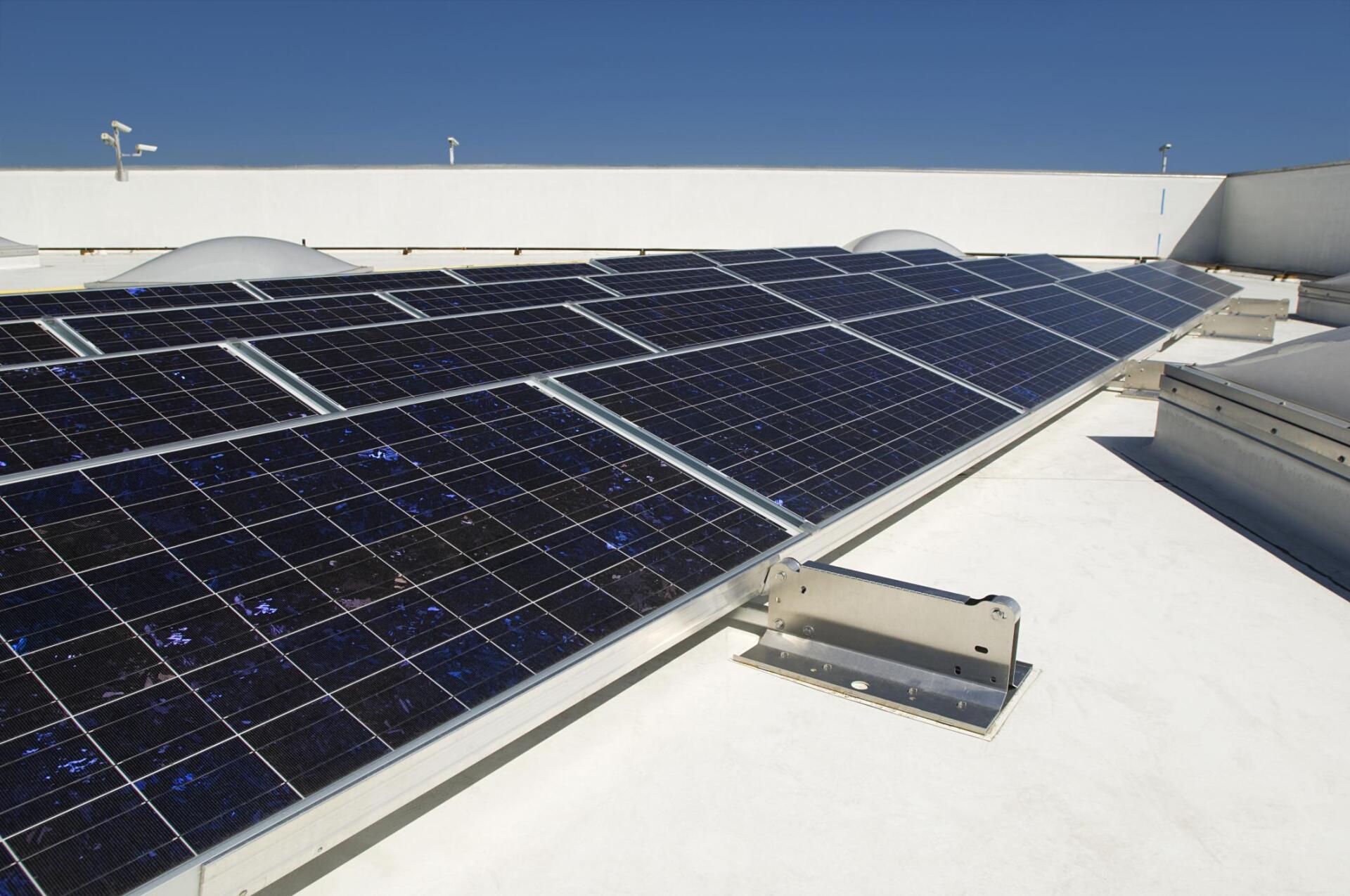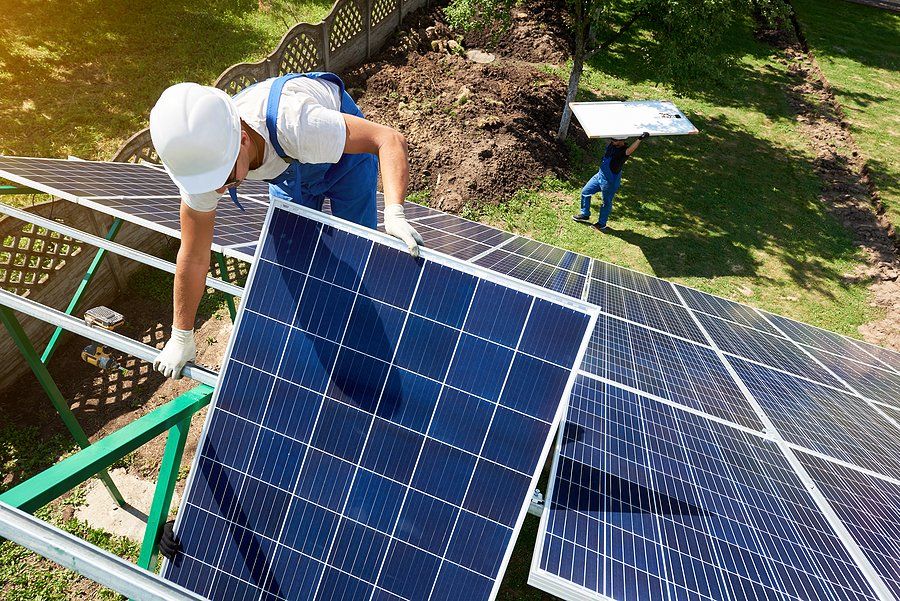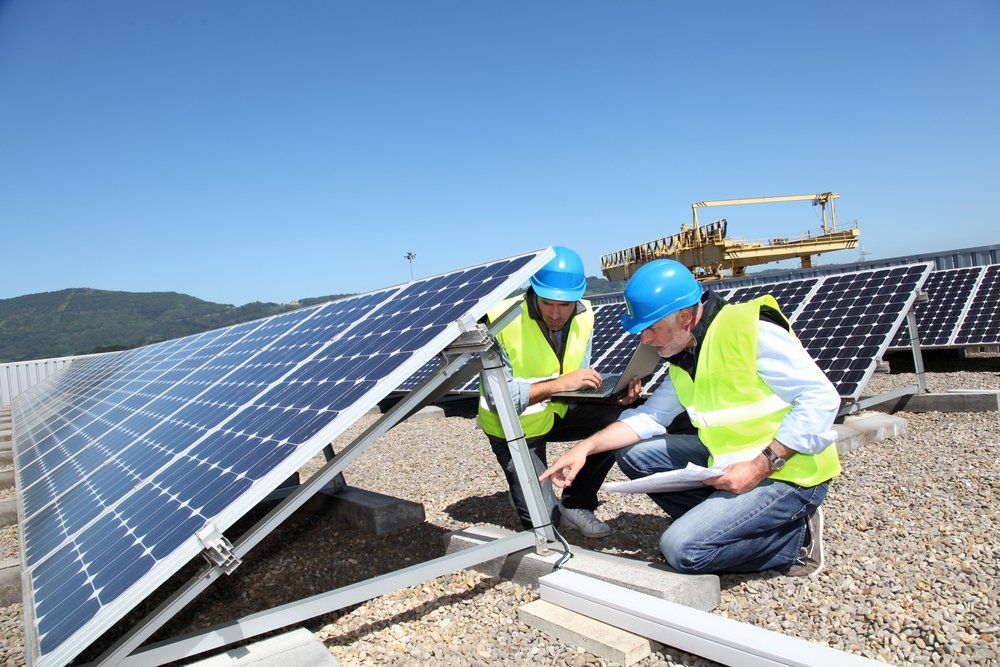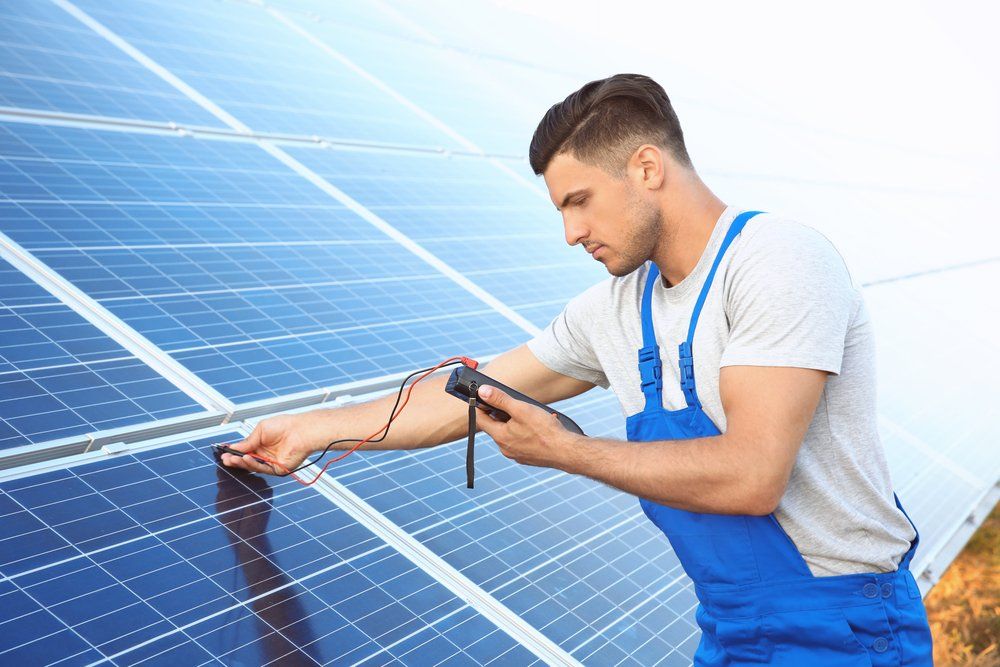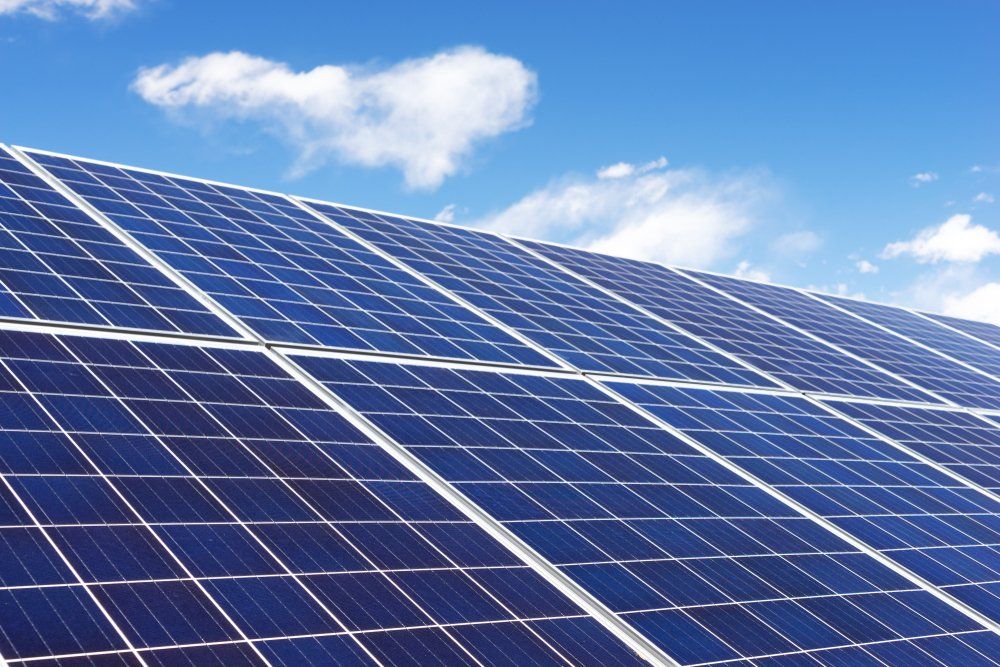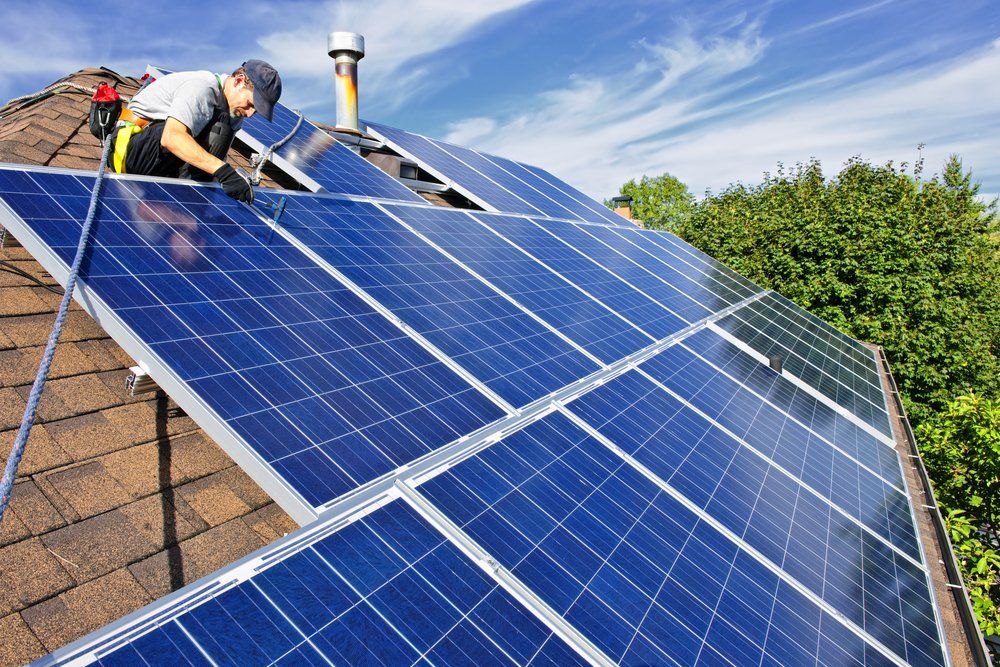How Solar Work: Unlocking the Mysteries of the Solar System
How Solar Work: Unlocking the Mysteries of the Solar System
The sun is the centerpiece of our solar system, and its rays provide warmth and light that sustains all life on Earth. It's no wonder then that people have looked to the sun for energy solutions for centuries. With advances in technology, it's now possible to harness the power of the sun and use it to generate electricity for your home or business. So how does solar work? Let's take a closer look at the mysteries of our solar system.
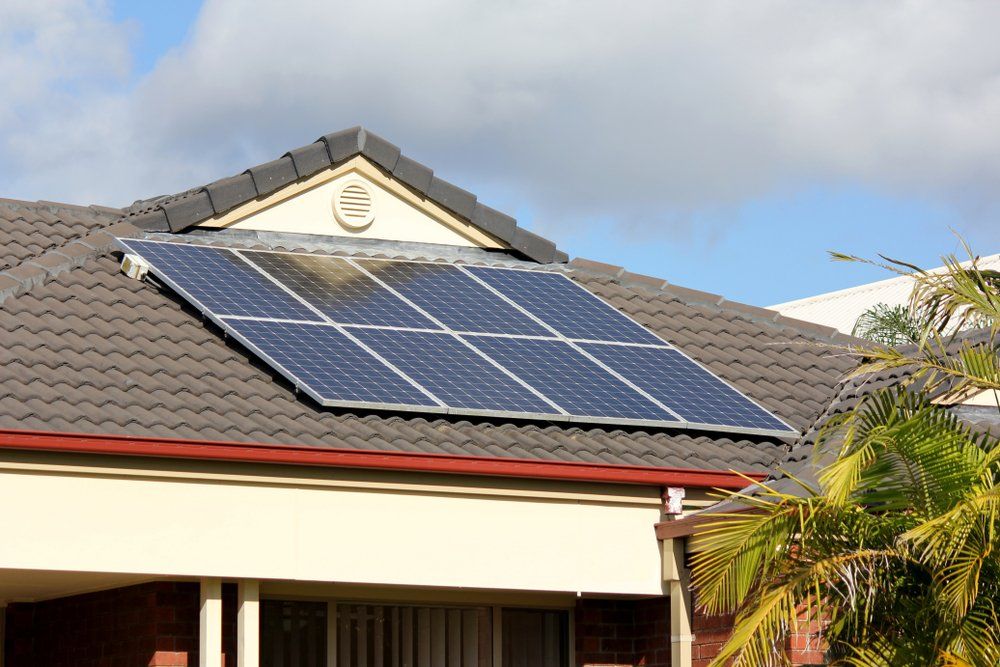
What is Solar Energy and How Does it Work?
Solar energy is the conversion of sunlight into electricity, either directly by photovoltaics (PV), or indirectly using solar thermal energy. Solar power systems use solar panels, which convert sunlight into electricity, to provide power for homes, businesses and other applications. While the technology behind solar panels has been around for a long time, it has only been in the last few decades that solar power has become a viable option for homeowners and businesses. The cost of installing a solar system has come down, while the amount of sunlight available has increased.
Solar power systems can be used to provide power for many applications, including homes, businesses, schools and government buildings. In some cases, solar power can also be used to generate heat for water heating or space heating. There are a number of factors that determine how much electricity a solar system will produce. These factors include the size and type of solar panel, the amount of sunlight available, the angle of the panels and the efficiency of the solar panel.
Solar power systems can be used to provide power for many applications, including homes, businesses, schools and government buildings. In some cases, solar power can also be used to generate heat for water heating or space heating.
The cost of solar energy has come down in recent years, making it more affordable for homeowners and businesses. While the cost of installing a solar system has come down, the amount of sunlight available has increased. Solar power systems can be used to provide power for many applications, including homes, businesses, schools and government buildings. In some cases, solar power can also be used to generate heat for water heating or space heating.
Solar energy is one of the most sustainable and renewable resources on Earth. It can be used for many different purposes such as heating homes, running electronics like your laptop or phone (energy storage), generating electricity at night when there's no wind by using photovoltaic cells that turn sunlight into chemical bonds in a process called solar power! The sun has been lighting our world up since its birth 4 billion years ago - so take this opportunity to learn more about what makes it work!
How Solar Panels Convert Sunlight into Electricity
When most people think about solar power, they think about those large panels installed on someone's roof. But what are solar panels and how do they work?
Solar panels are made up of many small cells that convert sunlight into electricity. The cells are made of semiconductor materials like silicon, which is found in sand. When sunlight hits the cell, it creates an electrical current. This current is then collected by wires and directed to an inverter, which converts the direct current (DC) into alternating current (AC) that can be used in your home.
They are a great way to generate renewable energy and help reduce your carbon footprint. They can also save you money on your energy bills. Contact a solar installer in your area to learn more about how solar can work for you.
The Benefits Of Using Solar Energy
There are many reasons why solar energy is a smart choice for homeowners or businesses. Some of the benefits include:
- Solar energy is a renewable resource, so it’s environmentally friendly and doesn’t produce harmful emissions.
- Solar energy systems can help reduce your monthly utility bills, and sometimes they can even provide enough power to cover all of your needs.
- Solar energy systems are low maintenance and typically have a long lifespan.
- Solar energy is a great investment – it can increase the value of your home and provide you with a steady stream of income through government incentives.
There are many benefits that come with using this type, such as lower rates for electricity and natural gas bills in your home or business. You can offset the expense of solar panels by taking advantage of state and federal tax credits, and many power companies also offer net metering, which pays you for any surplus energy your system creates. Solar is reliable, meaning you’ll have a continuous flow of energy during power outages. Additionally, studies have shown that solar panels increase home values. For all these reasons and more, solar energy is a great investment for your future.
How Solar Systems Are Installed
Solar systems must be installed in a way that allows them to capture the most sunlight possible. This usually means they are installed on the roof of a building, where they can get direct exposure to the sun. Some solar systems can also be installed on the ground, or in other locations where they can get a lot of sunlight.
Solar panels are installed on the roof of your home, and stringing them to their desired length is a process that requires experience. The most basic system uses pythons or extension cords for this task but these methods can be unsafe in inclement weather conditions like heavy snowfall which could cause you to lose power due it being too cold wherever there's exposed wiring near ground level.- not just limited at risk during winter months! So instead let us install an electrical box on the exterior side of your home. This will provide a weather-tight seal and keep all of your wiring safe and dry no matter what the forecast looks like. From there, we will run a conduit (pipe) from the box to your solar panels on the roof. And that's it! You're now ready to start producing your own clean, renewable energy.
Installing a solar system typically takes four to six hours, depending on the size and complexity of your home. The first step in installing any kind or size - small or large installation- is determining where you want it installed. Installed correctly with plenty ventilation all around they can last up into decades making power payments for many years without needing additional investment! Make sure everything runs smoothly from start until finish by providing as much information about what type(s)of energy needs best fit your situation so that together decide which option works most efficiently given these criteria
1) Tariff incentives available through utility companies
2) How much shade is on the roof
3) Your average monthly energy consumption
4) The size of the system you're interested in installing
Weighing all these factors - and more - with your solar installer will ensure that your home solar system is a perfect fit for your needs, both functionally and aesthetically. Solar panels are installed on the roof of your home, and stringing them to their desired length is a process that requires experience. The most basic system uses pythons or extension cords for this task, but these methods can be unsafe in inclement weather conditions like heavy snowfall, which could cause you to lose power due to it being too cold wherever there's exposed wiring near the ground level.- not just limited at risk during winter months! So instead, let us install an electrical box on the exterior side of your home. This will provide a weather-tight seal and keep all of your wiring safe and dry no matter what the forecast looks like. From there, we will run a conduit (pipe) from the box to your solar panels on the roof. And that's it! You're now ready to start producing your own clean, renewable energy.
The cost of installing a solar system
The cost of installing a solar system can vary depending on the size and type of system you choose. However, the average cost of a solar system is around $3,000-$16,000. While the initial cost of a solar system may be higher than traditional electricity, over time you will save money on your energy bill. Additionally, many states offer tax credits and other incentives to help offset the cost of installing a solar system. This price will depend on the location, with solar power costing more in regions that enjoy less sunlight.
The cost of installing a solar system can be expensive, but don't worry - you're in good hands. There are many companies out there who will work hard to find ways around this price tag without actually charging extra money. The best solar companies know how to negotiate with their suppliers and will do what it takes to get a good solar system for you without breaking the bank. So don't be discouraged - even though solar may seem expensive, it's still worth every penny.
When To Install Solar Panels
To get the most out of your solar panels, you should install them during a specific time frame. The best times for installation are between April and July when there's less rain which will make it easier on their cells!
As we all know, water has terrible effects on anything electronic - including our homes' appliances like electricity generating devices (EGD). So by installing these types systems in advance before summer comes around again this year, then next decade can expect longer lasting power output compared to those who wait until autum ton have it installed.
In addition, those homeowners who are living in the northern hemisphere should take into account that they should install solar panels facing southward so that they can capture the maximum sunlight exposure throughout the day. Whereas those residing in the southern hemisphere should install their systems with a northward tilt to get the most sunlight possible.
Although solar panel installation might be a daunting task, it is a very crucial decision that homeowners should invest in. Not only will they save money in the long run, but they'll also help reduce their carbon footprint and contribute to a cleaner and healthier planet!.
Maintenance and care for your solar system
Your system will require regular maintenance and care in order for it to operate at its best. The first step of this process is cleaning the panels on a weekly basis or biweekly if you're seeing dust accumulate beneath them as well as other signs that indicate there may be an issue with air circulation around these parts (like blackening skin). You should also check your batteries monthly by inverting one upside down so all surfaces touch bottoms instead of side up where water can escape; this will help you spot any early signs of corrosion that may develop over time. Inspect your wiring every six months and tighten all connections as needed; if there are any frayed wires, replace them immediately to avoid a potential fire hazard.
- weekly panel cleaning
- monthly battery inspection
- wiring inspection every six months
- tightening connections as needed
- replacing frayed wires immediately
Solar panels should be kept clean and free of debris, as this can affect their ability to convert sunlight into electricity. In addition, solar panels should be angled correctly to receive the most sunlight. If you have a solar power system, it's important to keep track of your energy production and usage. You can do this by monitoring your system's performance or using a solar energy monitoring system. You should also regularly check your system's inverter and batteries.
If you have any questions about maintaining your solar system, be sure to contact your solar installer. They can help you keep your system running smoothly and ensure that you're getting the most out of your investment!
Final Thoughts
As we have seen, there is a lot more to solar work than just installing panels on your roof. By understanding the mysteries of our solar system and how it all works together, you can make better decisions about your energy needs and future. Contact us today for all of your solar systems services, repair and maintenance needs – we would be happy to help!

